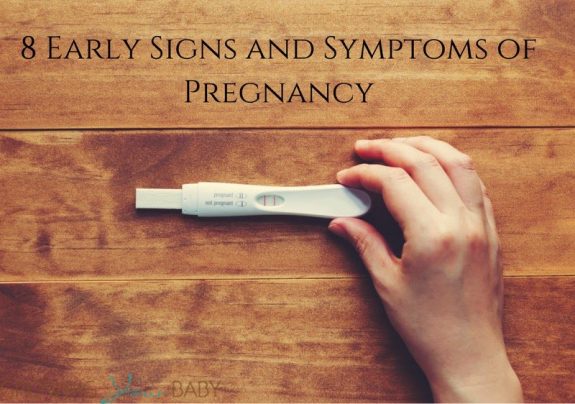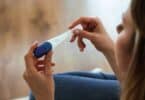Have you been trying to conceive? Suspect (or hope) that you might be pregnant? While a missed period might be one of the more obvious signs of pregnancy, but it also tends to be one of the last to surface – and some women continue to experience period-like bleeding, even when they are pregnant. Thankfully, there are other symptoms that can clue you in. Learn more about them (and find out when to talk to your doctor) with help from the following 8 early signs and symptoms of pregnancy.
1. Nausea (With or Without Vomiting)
For some expectant mothers, morning sickness starts early – sometimes within the second week of pregnancy. You might first suspect you have the flu, but if you’re not experiencing the typical fever and body aches that tend to go along with it and the nausea is hanging on longer than what seems normal, it may be time to take a pregnancy test. If it comes up negative but the symptoms persist, we suggest scheduling an appointment with your doctor, just to be safe.
2. Changes in Your Breasts
Changes in the breasts are common during the first weeks of pregnancy. Similar (but also different) to what you might experience right before your period, these changes may include pain, tenderness, swelling, heaviness, a sense of “fullness,” or a tingling sensation. Some women also notice physical changes, such as darkening of the areolas.
3. Increased Urine Output
Shortly after conception, your body starts to send more blood to its vital organs. In addition, your uterus begins to expand, and that can place added pressure on your kidneys. Paired together, these two factors cause an increased need to urinate during early pregnancy. Just keep in mind that this same symptom could be an early indicator of a urinary tract infection. If symptoms persist and you test negative on a pregnancy test, or if you experience any sort of pain during urination or intercourse, it may be wise to schedule a doctor’s appointment.
4. Moodiness/Mood Swings/Emotional
Hormone fluctuations around your period can make you a little moody, emotional, or irritable, but so can the ones that occur during pregnancy. So, if you’re crying over things you normally wouldn’t or otherwise feeling out of sorts but don’t start your period, you may want to consider taking an over-the-counter pregnancy test.
5. Unexplained Fatigue
Unexplained tiredness – not just your typical sleepiness, but outright fatigue – is extremely common during the first trimester of pregnancy. Needing to get up at night to use the restroom, morning sickness, and mood swings can exacerbate the fatigue. No one knows why it occurs but the theory is that it’s linked to the influx of hormones that occur right after conception.
6. Elevated Basal Body Temperature
If you’re trying to conceive, you may have been tracking your basal body temperature to determine when you’re most fertile. A temperature that has been elevated for two or more weeks could indicate pregnancy. However, you should still take an over-the-counter pregnancy test to confirm pregnancy before scheduling an appointment with your OBGYN.
7. Abdominal Bloating
Bloating before your period is normal, but it can also occur right at the start of pregnancy. However, unlike the bloating you feel right before a period, this bloating will not go away. Your clothes will continue to fit a little more snug than usual, and you may start to notice other early pregnancy symptoms as well.
8. Food Cravings or Aversions
Food cravings and aversions are one of the most interesting pregnancy symptoms because they hit everyone differently. Some women do not experience either. Some experience just one or the other. Many have both cravings and aversions – but it typically starts with aversions. You might suddenly feel nauseous over the smell of cooked eggs, or just the appearance of raw meat might be enough to make your stomach turn.
Final Comments on Early Pregnancy Symptoms
If you’re experiencing early pregnancy symptoms and have taken an over-the-counter pregnancy test, only to be disappointed but still aren’t experiencing a period, be patient. Despite what the labels on store-bought pregnancy tests say, they are not a reliable method for detecting pregnancy until about a week after you have missed your period – and even then, there is no guarantee that your HcG levels are high enough to register. Keep taking care of your body and, if necessary, make an appointment with your OBGYN to confirm a pregnancy that does not seem to be registering on an at-home pregnancy test.







